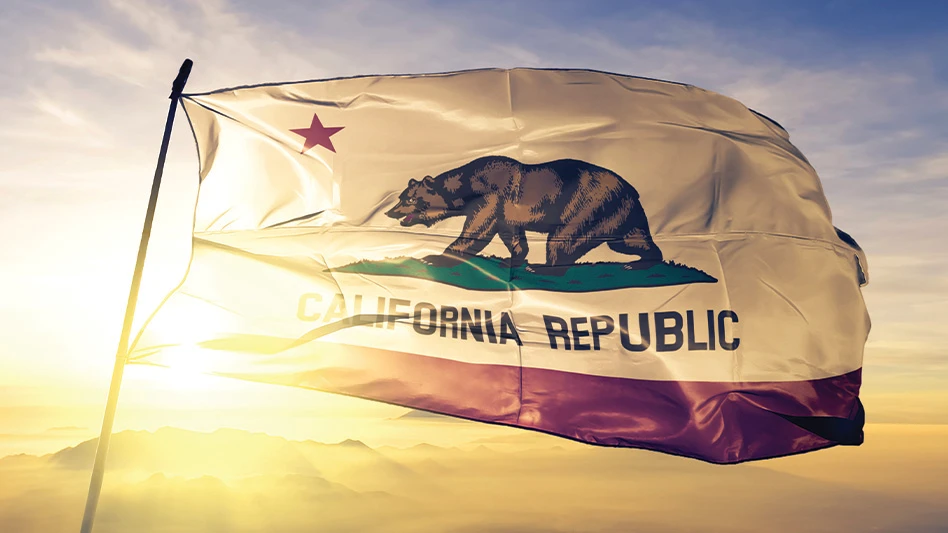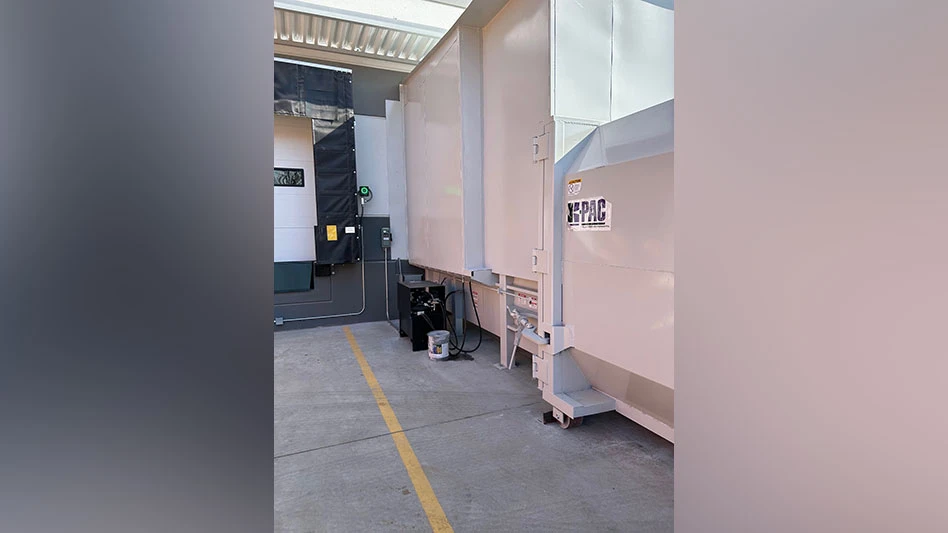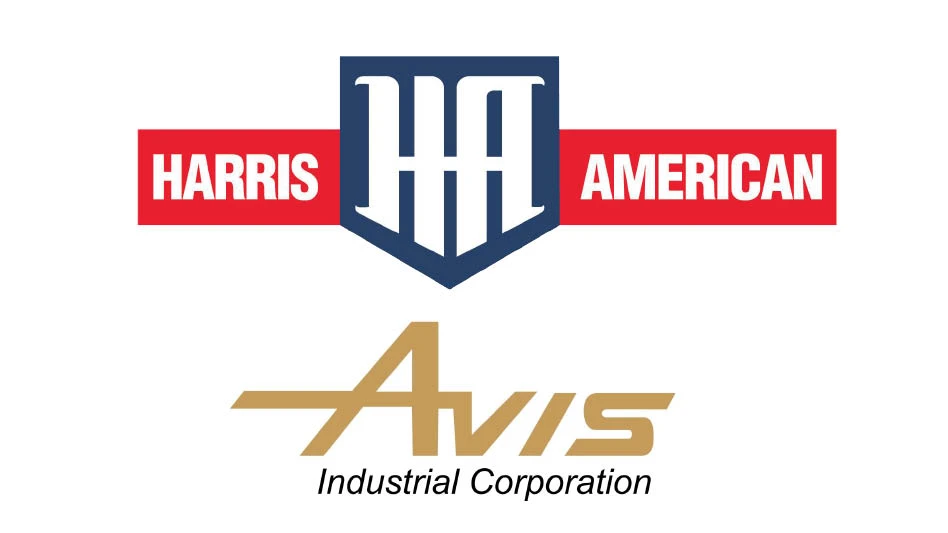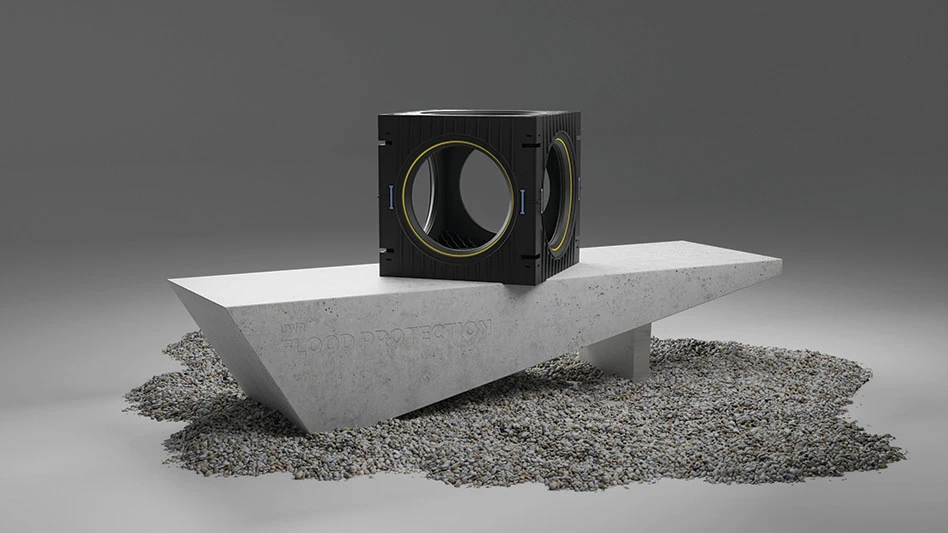
Oleksii | stock.adobe.com
As the deadline to finalize the rules and regulations of California’s Senate Bill 54 (S.B. 54) approached March 7, Gov. Gavin Newsom informed the state’s Department of Resources Recycling and Recovery (CalRecycle) to restart negotiations, potentially delaying the legislation's progress.
The Plastic Pollution Prevention and Packaging Producer Responsibility Act, or S.B. 54, is designed to cut single-use packaging and plastic foodware waste by introducing a statewide extended producer responsibility (EPR) program. Newsom signed the bill in 2022, and a host of industry and environmental groups, regulators and lawmakers have worked ever since to establish how it will be implemented.
RELATED: CalRecycle releases SB 54 updates as new year begins | Circular Action Alliance names executive director in California
Now, according to a Los Angeles Times report, Newsom is asking for a redo, citing the program’s cost as an issue.
“The governor is directing CalRecycle to restart these regulations to ensure California’s bold recycling law can achieve its goal of cutting plastic pollution and is implemented fairly,” Daniel Villaseñor, Newsom’s deputy director of communications, told the L.A. Times in a statement.
The report references a state analysis showing the legislation would cost the state $36 billion and each California household about $300 once enacted. The analysis also says those costs are likely to be mitigated by an estimated increase in personal income amounting to $19.2 billion coupled with additional health and environmental benefits totaling $40.3 billion.
“[We will] continue to work with industry, advocates and other interested parties to develop rules that ensure California’s plastic pollution law balances the need to cut plastic pollution with the importance of minimizing costs to families and small businesses," CalRecycle tells Recycling Today.
State Sen. Catherine Blakespear calls the passage of S.B. 54 a "gigantic step forward" in combatting the growing amount of plastic in the environment in a March 7 statement, though she says progress is "significantly delayed now due to Gov. Gavin Newsom's administration failing to issue the regulations required to implement this groundbreaking measure that ensures producers of consumer products take responsibility for the end-of-life management of their plastic.
"The statutory timelines in S.B. 54 have not changed and we need to remain committed to meeting them, despite this regulatory step back. Producer responsibility for plastic packaging will bring financial relief to residents and businesses that are facing repeated recycling and waste management rate hikes to pay for the ever-increasing difficulty of managing our complex waste stream. ... We must immediately get back on track to release the regulations that govern the rollout of the Plastic Pollution Reduction Act."
Matt Seaholm, the president and CEO of the Plastics Industry Association (PLASTICS), says the decision to restart the regulatory process for S.B. 54 highlights the "significant challenges" in its original implementation for consumers, recyclers and businesses.
"The Governor's directive presents a critical opportunity for California policymakers to develop a workable recycling framework that incorporates industry expertise and meets environmental objectives, ensuring economic feasibility and global competitiveness," he says. "Achievable, balanced policies require collaboration, not rushed regulations that create unintended consequences for Californians while failing to advance real sustainability solutions. The plastics industry remains committed to working with Governor Newsom and policymakers to craft practical, effective regulations that drive economic growth, foster innovation and enhance circularity."
A number of environmental groups expressed disappointment and concern over the legislative delay.
“We are disappointed that Gov. Gavin Newsom failed to implement what he calls ‘the most significant overhaul of California’s plastics and packaging recycling policy in history,’ which puts the interests of the plastics and fossil fuel industry above the wallets and welfare of Californians and the environment,” the Monterey, California-based Monterey Bay Aquarium and the Washington-based Ocean Conservancy and Oceana say in a joint statement released March 7.
“When he signed Senate Bill 54 in June 2022, Gov. Newsom touted the law for going ‘further than any other state on cutting plastics production at the source,’ and said that ‘California won’t tolerate plastic waste that’s filling our waterways and making it harder to breathe. We’re holding polluters responsible and cutting plastics at the source.’ We expect the Governor to keep his commitment.”
The organizations say industry lobbyists mounted an “aggressive" two-month campaign to press Newsom to shelve regulations that were developed with public input over issues that are set in law, such as the prohibition of “harmful chemical recycling technologies” and the industry-funded $5 billion plastic pollution mitigation fund. They note that CalRecycle held dozens of public workshops and all-day meetings and drafted three regulatory revisions responsive to nearly 5,000 comments and 450 letters.
Miho Ligare, plastic pollution initiative senior manager for the San Clemente, California-based Surfrider Foundation who participated in developing S.B. 54’s regulations, says that his organization is “extremely disappointed” in the outcome.
“With countless hours spent developing and refining the draft S.B. 54 regulations, a thorough process with ample public engagement opportunities was conducted,” Ligare says. “This is another unfortunate example of industry undermining public processes to disrupt and maintain the status quo and pad their bottom line. We’re drowning in plastic pollution, and as California is looked up to as a global leader in environmental conservation, the state led down our communities, especially marginalized communities who bear the brunt of cumulative pollution impacts, and our environment by intervening.”
The legislation calls for the state’s chosen producer responsibility organization (PRO), the Washington-based Circular Action Alliance (CAA), to work with industry participants to ensure that by 2032:
- 100 percent of single-use packaging and plastic food serviceware sold in the state is recyclable or compostable;
- 65 percent of single-use plastic packaging and food serviceware is recycled; and
- 25 percent less single-use plastic packaging and food serviceware is sold.
Additionally, S.B. 54 requires producers must pay $5 billion over 10 years—$500 million per year—beginning in 2027 to address the environmental impacts of plastic pollution and aid affected environmental justice communities most impacted by the damaging effects of single-use plastic waste.
In December 2024, CalRecycle and consulting firm Accenture published a source reduction baseline that established a baseline measurement to ensure the state achieves its S.B. 54 objectives to cut the amount of single-use plastic packaging and foodware by 2032.
To define quantitative source reduction targets, CalRecycle established a baseline weight and number of plastic components associated with single-use plastic packaging and plastic foodware sold, offered for sale or distributed in the state in 2023. During that year, the report says more than 2.9 million tons of plastic were used in single-use packaging and foodware, and these items collectively were made up of 171.4 billion plastic components.
Sponsored Content
Still relying on manual sorters?
Let AI do the heavy lifting. Waste Robotics delivers reliable, high-performance robots tailored for complex waste streams. They require minimal maintenance, are easy to operate, and are designed to boost your recovery rates. Smarter sorting starts with the right partner. Waste Expo Booth #1969 & REMA #2843
Click here to see our robots in action!Using this baseline, CalRecycle says CAA will need to reduce single-use plastics by approximately 725,000 tons of plastic and 43 billion plastic components to reach the 2032 target.
CAA tells Recycling Today it respects Newsom's decision to reopen the rulemaking process for S.B. 54 and appreciates the state's commitment to ensuring its effective and efficient implementation.
"As the PRO selected by California, our priority is to ensure the successful and timely execution of this landmark legislation," CAA says. "We are committed to meeting its ambitious goals and to implementing the law as intended."
While the reopening of rulemaking brings with it a period of review, CAA says it is fully prepared to adapt its implementation strategy as needed.
"The additional time provided for refining the regulations will allow us to address critical elements and ensure the program's long-term success," the group says. "We deeply appreciate the continued collaboration and engagement of all interested parties and emphasize the importance of open dialogue throughout this process."
CAA says it will provide timely updates to producers and all interested parties as new information becomes available, adding that, moving forward, it will continue to build its team and enhance its capabilities to ensure "a robust and successful implementation."
Get curated news on YOUR industry.
Enter your email to receive our newsletters.
Latest from Recycling Today
- Enfinite forms Hazardous & Specialty Waste Management Council
- Combined DRS, EPR legislation introduced in Rhode Island
- Eureka Recycling starts up newly upgraded MRF
- Reconomy Close the Gap campaign highlights need for circularity
- Nickel carbonate added to Aqua Metals’ portfolio
- EuRIC, FEAD say End-Of-Life Vehicle Regulation presents opportunity for recyclers
- Recyclers likely to feel effects of US-China trade war
- BCMRC 2025 session preview: Navigating battery recycling legislation and regulations









